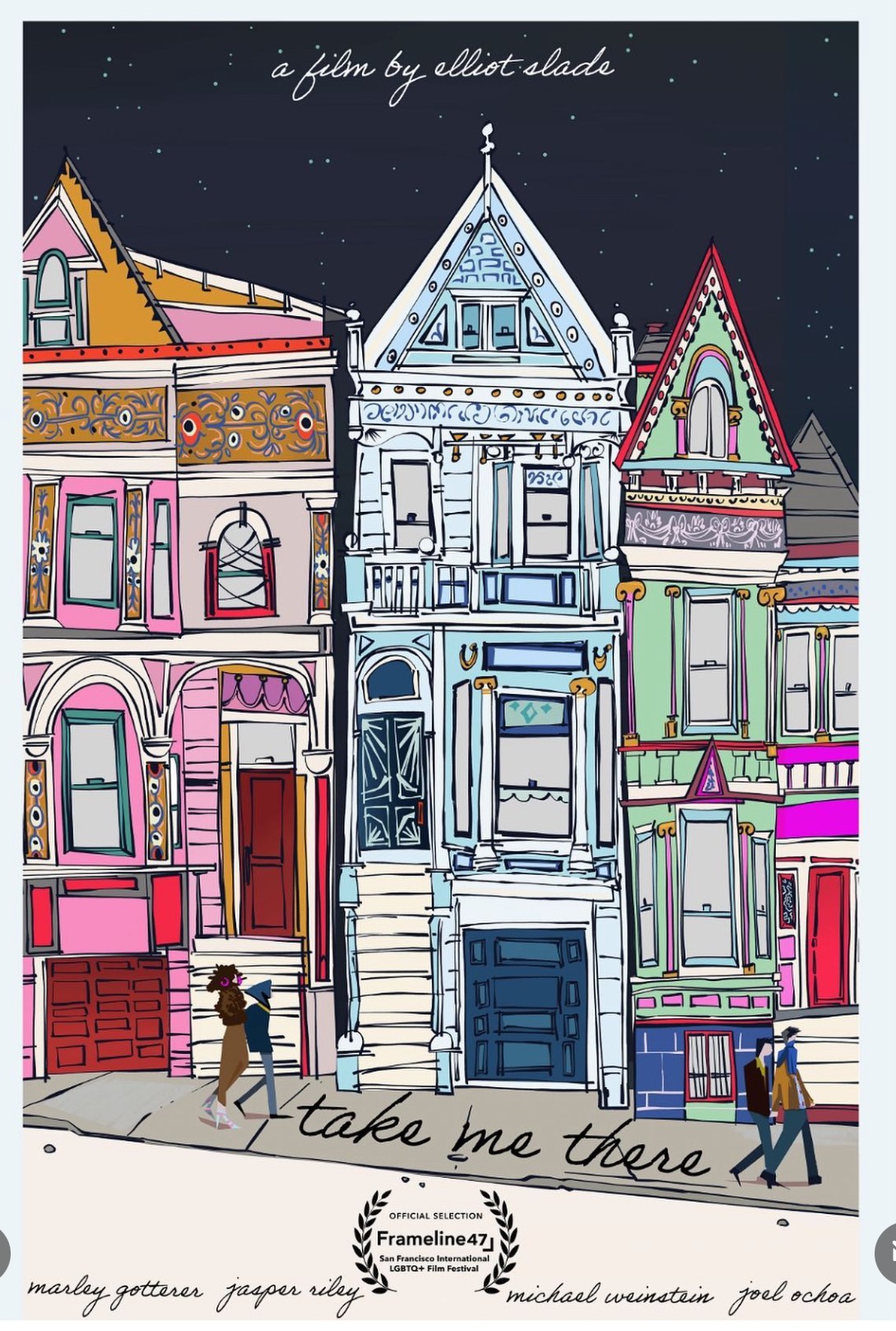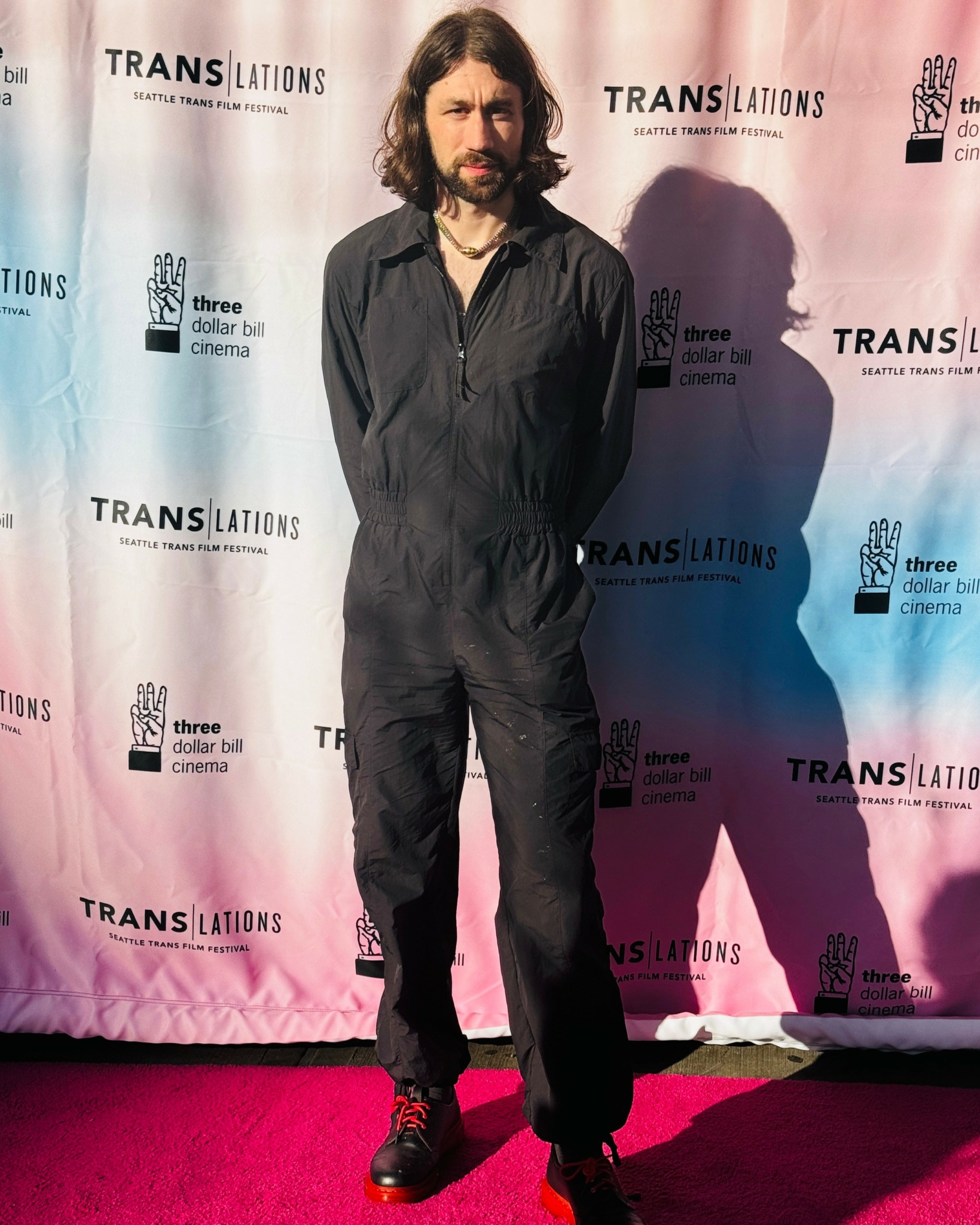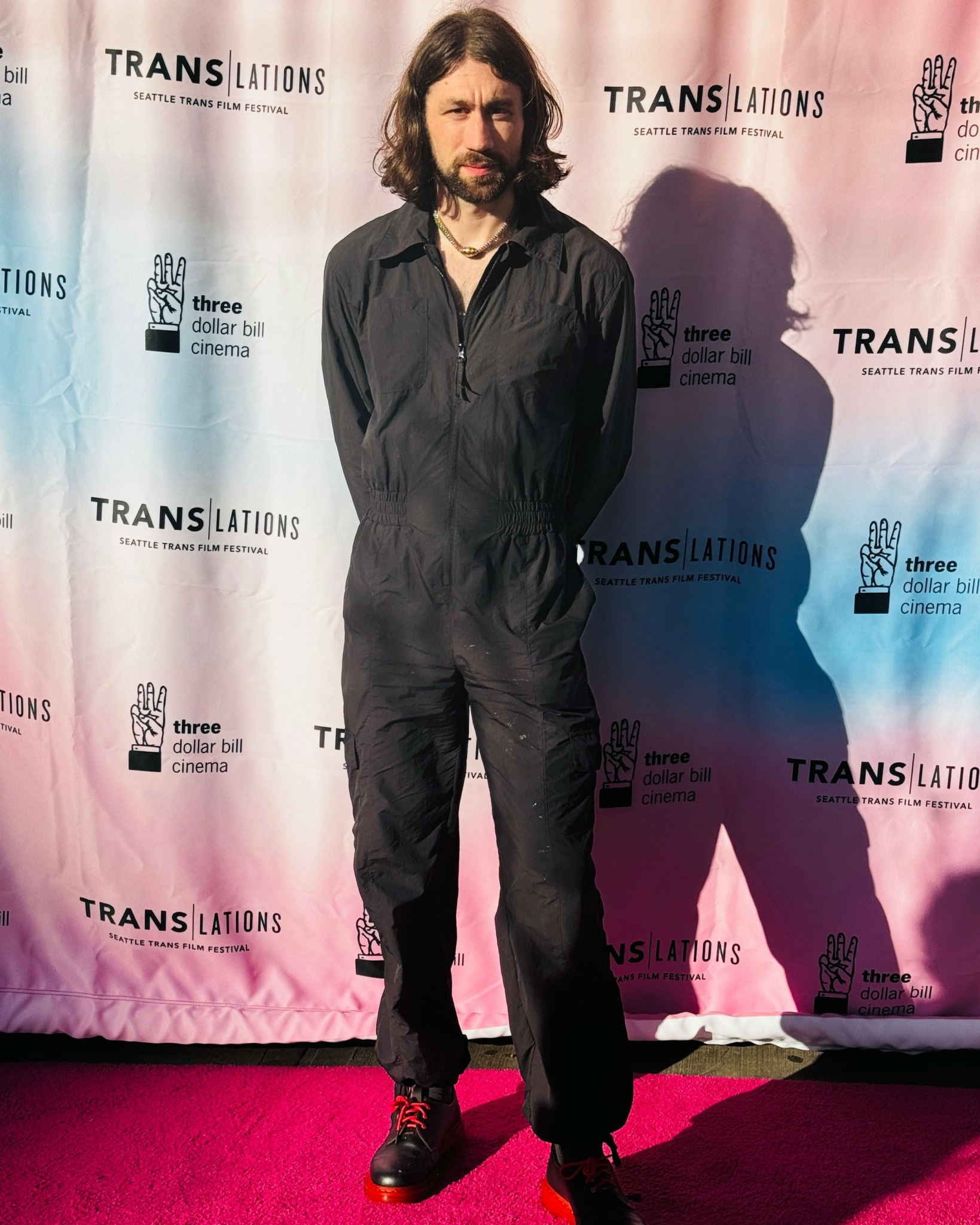We were lucky to catch up with Elliot Slade recently and have shared our conversation below.
Elliot, thanks for taking the time to share your stories with us today Learning the craft is often a unique journey from every creative – we’d love to hear about your journey and if knowing what you know now, you would have done anything differently to speed up the learning process.
So technically, it was out of necessity. I’m one of those people who need to know everything behind the creative process. I spent years learning how to direct through reading and practice, then devoted another year to cinematography and studying films… but the truly significant learning came later.
Where I genuinely learned to do what I do was through devastating heartbreaks. After experiencing several soul-crushing disappointments, my heart and mind needed to translate these stories to the screen. I’m a filmmaker, but music became my greatest inspiration during this period, particularly The National. Their descriptive lyrics about loss, grief, and connection filled my imagination with ideas, shots, storylines, and tone—that’s when I fully committed.
I would immerse myself in emotionally powerful media, then observe how people interacted in the real world. I’d go on dates and learn about people’s experiences and histories—as you age, you discover everyone carries their heartbreak, everyone has someone who got away, and they willingly share these painful moments. A collective grief.
I channeled these emotions into writing, choosing different coffee shops in San Francisco on weekends, listening to The National, drinking coffee, and working on scripts. Then I’d approach specific friends to see if they wanted to participate in a film and shoot shoot shoot.
In terms of speeding up the process, I think I just needed to shoot more. I spent so much time writing and procrastinating and not enough time actually filming. My ADHD would sometimes kick in, redirecting me to work on an entirely different script. I should have discovered The National sooner – you know when you find that creative catalyst that unlocks everything? That was them for me. I also believe it’s about building the right team – finding people you trust who genuinely appreciate the topics and genres you create. I would have invested time building that community more quickly.
I think the biggest skill is being able to channel humanity on the screen. In your writing, in your directing and in your cinematography. As we move to a more AI and tech focused world, we need to have filmmakers reflecting real humanity on the screen. We need scripts to keep us grounded, keep us familiar and keep showing us who we are, the emotions we have and the emotions we share. Knowing humans, knowing people and knowing yourself is the biggest skill you can have and foster.
The problem is, is that everything is going to be run on algorithms, we’re going to move away from indie as the streaming services look to put out easy, digestible content to make money. We are in a period where underground cinema needs to come back, we need indie directors to show people’s lives reflected on the screen. We need to fight back with our vision and creativity.
The only obstacles in learning more is actually $$$, you can learn pretty much anything and build those skills but you need money to access cameras, actors, equipment and all that jazz to make something. That’s why I work full time, to fund my creativity. The second obstacle I see is people’s egos. You can always learn, you can always improve and you have to keep hunting for that.
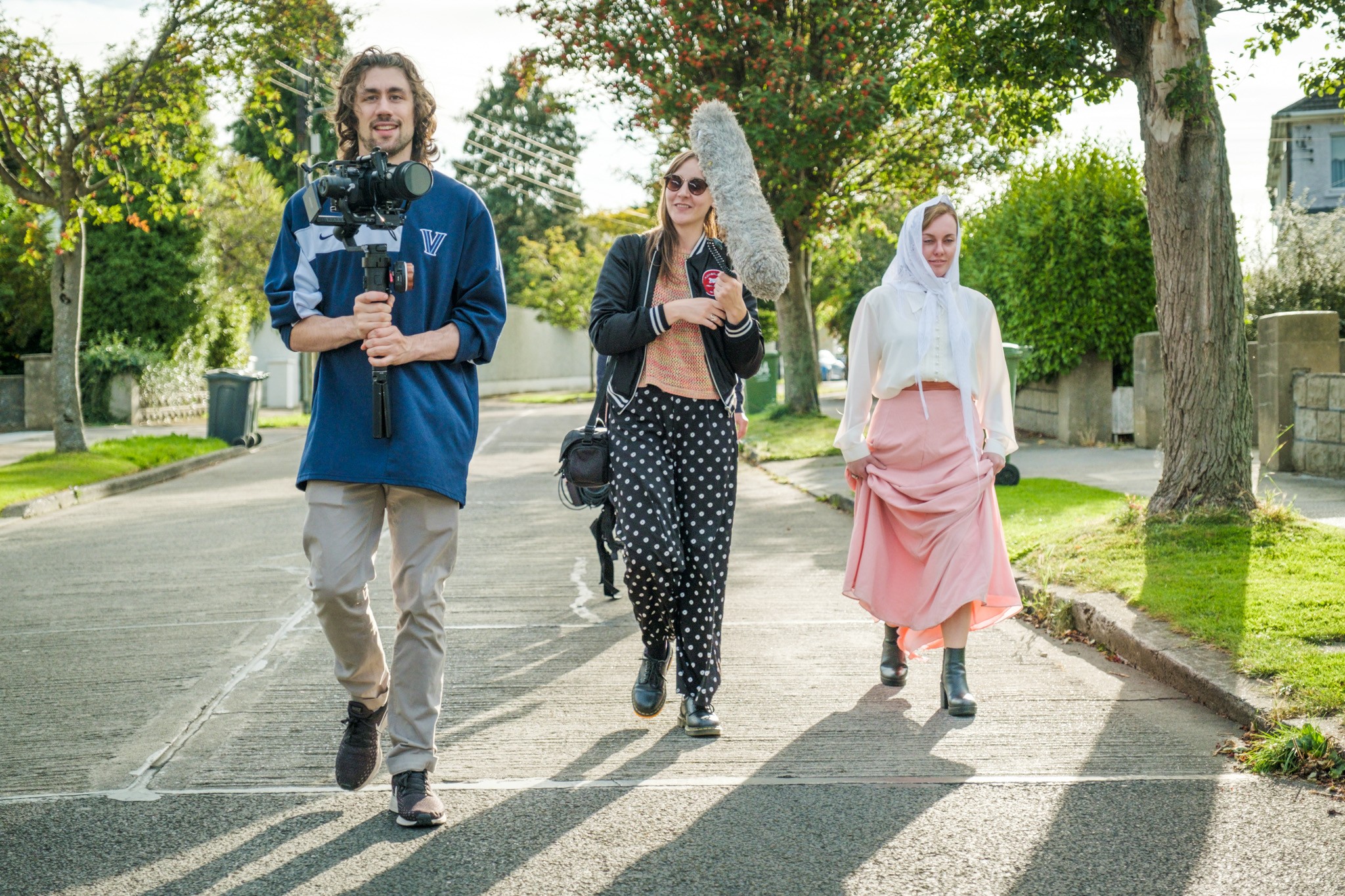
Awesome – so before we get into the rest of our questions, can you briefly introduce yourself to our readers.
So hey, my name’s Elliot Slade, I grew up in Wales and spent most of my early years as a professional athlete. However, film was the way I connected to the world and people. I used to use pocket money as a child to buy VHS tapes of horror movies and watch them all night. I used to binge watch anime all day. I used to play story-focused video games and catch myself dreaming about them and crafting new narratives in my head. It was the way I connected with the world. It’s probably why I escaped the UK.
I also led this double life as a professional athlete, I was training every day and thinking about stories during practice, always thinking about the latest show or game I could play after races. One day I went with my coach to Arizona and we had evenings to ourselves, I was 16. It was my first time having HBO on TV and I just stayed in my room watching: Seeking a Friend for the End of the World, Stoker and Beautiful Creatures. I felt alone in Arizona but these movies kept me company. I knew from that moment I wanted to make people feel the same way. I cried a lot that month.
After pausing my creative pursuits to join Villanova University’s NCAA track team for three years, things took a difficult turn. The pressure of full-time athletics combined with being discouraged from creative expression destroyed my passion for both running and life itself. Being thrust into a world of double training sessions, conditioning, and singular focus was something I wasn’t prepared for. This led me to my lowest point. I even experienced homelessness for a time while searching for meaning, until running coach Jerry Kiernan found me and helped rebuild my life (but that’s a movie I’m currently writing!).
After several years, I decided to return to my creative roots. I wanted to make films my way and tell stories that weren’t being told. I didn’t need big sets or large crews, just a small group of passionate people committed to filmmaking. So I began creating, finding crew members through Facebook posts and making it work with what I had.
Through relationships, breakups, marriage, and divorce, I eventually found my authentic voice. I wanted to tell genuine stories about human connections—to let people see their own shadows reflected on their screens. My goal became showcasing realistic dialogue, interactions, and the vulnerable moments we typically shy away from in our lives.
A lot of my stories are based on my own life or the collective experiences of people I know. My writing process is extensive, involving multiple rounds of dialogue revisions that often continue to evolve during filming. I collaborate closely with actors, incorporating their real-life emotions into the script as we craft scenes together. This approach combines scripted elements with improvisation to create authentic moments.
Currently, my work explores adult relationships and their inherent challenges. I’m most proud of my film “Take Me There,” which premiered at Frameline Film Festival. It was truly independent, a low-budget, no-crew short featuring just myself, a camera, and the actors. I shot the entire project in only 8 hours and spent the following days editing. Initially, I had modest expectations, but to my surprise, the film was accepted into Frameline and has since traveled throughout the USA, recently screening at the Melbourne Queer Film Festival.
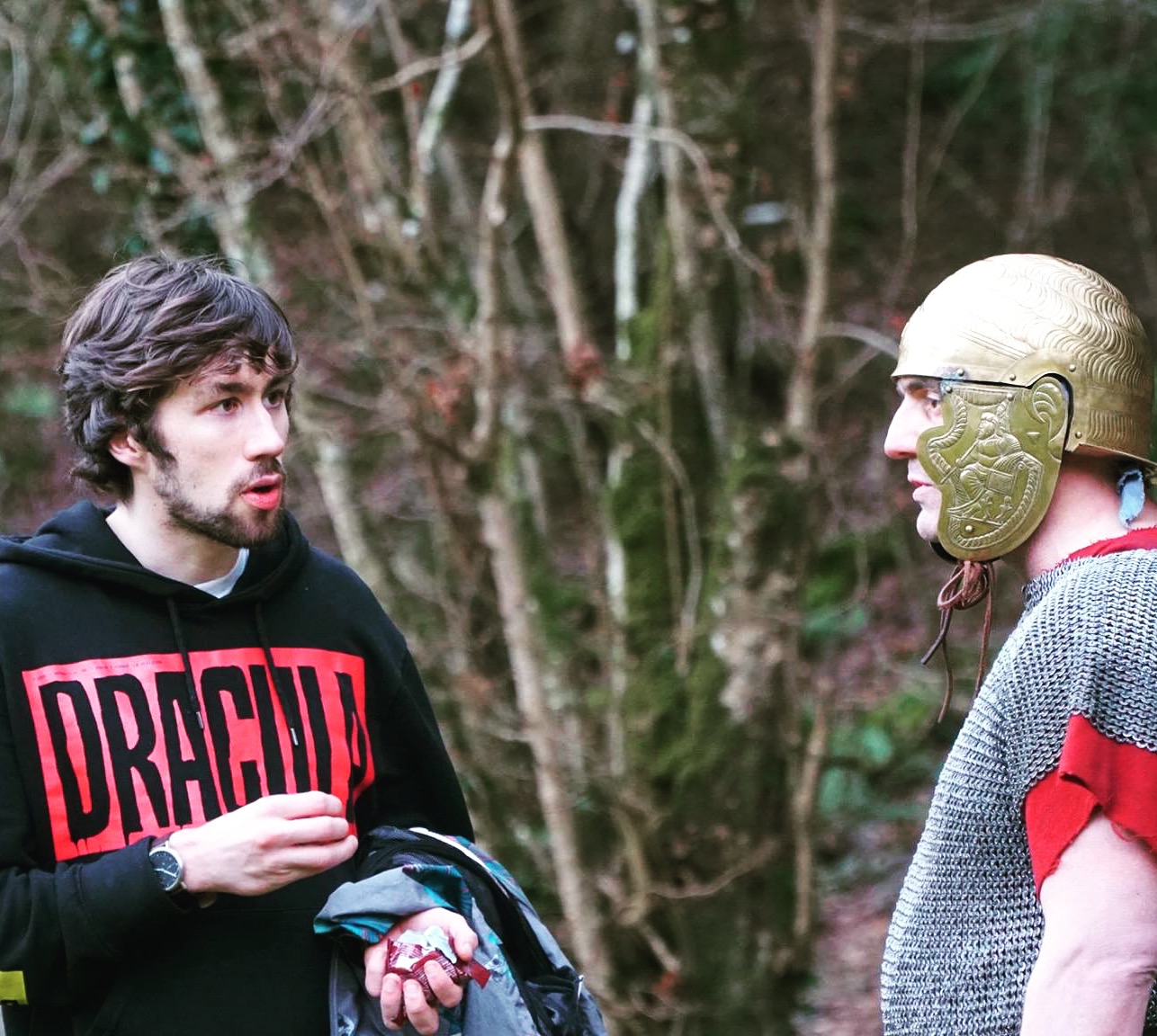
Have you ever had to pivot?
For years I realized I wanted to self-fund my movies and maintain creative control. I lived the starving artist life, working odd jobs making $100 here, $500 there, and investing it all into filmmaking. While this sounds romantic, it wasn’t sustainable. It placed tremendous pressure on me, both emotionally and financially. I knew I needed a different approach.
I pivoted from odd jobs and leveraged my storytelling skills to break into marketing. I focused on video, social, and content marketing, emphasizing my filmmaker background. This transition landed me full-time positions in San Francisco with salaries that allowed me to purchase my own equipment, pay cast and crew, and maintain control over my productions.
In an unexpected turn, I secured a job in the crypto industry, something that would surprise anyone who knows me. Companies are increasingly recognizing the power of video content, which aligns perfectly with my expertise. I accepted a position at Halliday, a Web3/blockchain startup, where I serve as the social and video lead. As AI proliferates, we’re witnessing a growing demand for human-created content. People crave authenticity and human-driven material for their feeds, as AI-generated content is already causing fatigue.
Regarding NFTs, while the concept is promising (artwork you can buy and sell), the execution has been disappointing. The market is flooded with low-quality digital art, often AI-generated, that lacks meaningful conversation, message, or substance. There exists potential for legitimate artists to create and sell NFTs, but we’re not there yet. The crypto community purchasing NFTs seems disinterested in artists outside the crypto space. I hope this changes, as there could be a powerful intersection between AI, crypto, and art that creates opportunities and income for artists. Until then, it’s mostly uninspiring digital images of goofy-looking animals, which I HATE and hope dies.

Is there something you think non-creatives will struggle to understand about your journey as a creative?
So I’ve been lucky to be around some of the best creatives in the world and some of the most incredible business people in the world. I’ve seen how differently people think. I remember this time I was talking to a VP of a major company about creativity, we would spend hours being fascinated by our brains and he started off with saying:
“Imagine a beach.”
“Okay.”
“What do you see?”
“Blue sky, I see rippling water, I see the yellow sand and feel the warmth on my skin. I see green trees lining the shore and white fluffy clouds in the distance.”
“Great.”
“What do you see?”
“I see a list of words. Sand, Sky, Trees, People.”
“You don’t visualize it?”
“No, I see the words of what should be there.”
And that blew my mind. We talked more and more and I realized that I could never do what he does. He was a math expert, a numbers genius. And he could never do what I do. He couldn’t write from imagination, he couldn’t come up with anything himself. He would tell me that when he does try, he just writes what he knows and copies what he’s seen.
I think non-creatives need to realize that creativity is often ingrained into someone; I think it’s a talent. I daydream entire scripts and worlds on a run and can get to writing the same day. I know creatives that just naturally know how to capture an image, who can see the world in a creative way, and I know those who can’t. I think the difficulty is that creativity is often not attached to a “result” or analytics. A lot of creativity is RISK, a lot of execution is risk, and it’s hard to quantify that risk but you have to execute, you have to try, and you have to fail to see what works.
Contact Info:
- Website: https://www.elliotslade.com
- Instagram: https://www.instagram.com/elliotslade
- Twitter: https://x.com/elliot_slade
